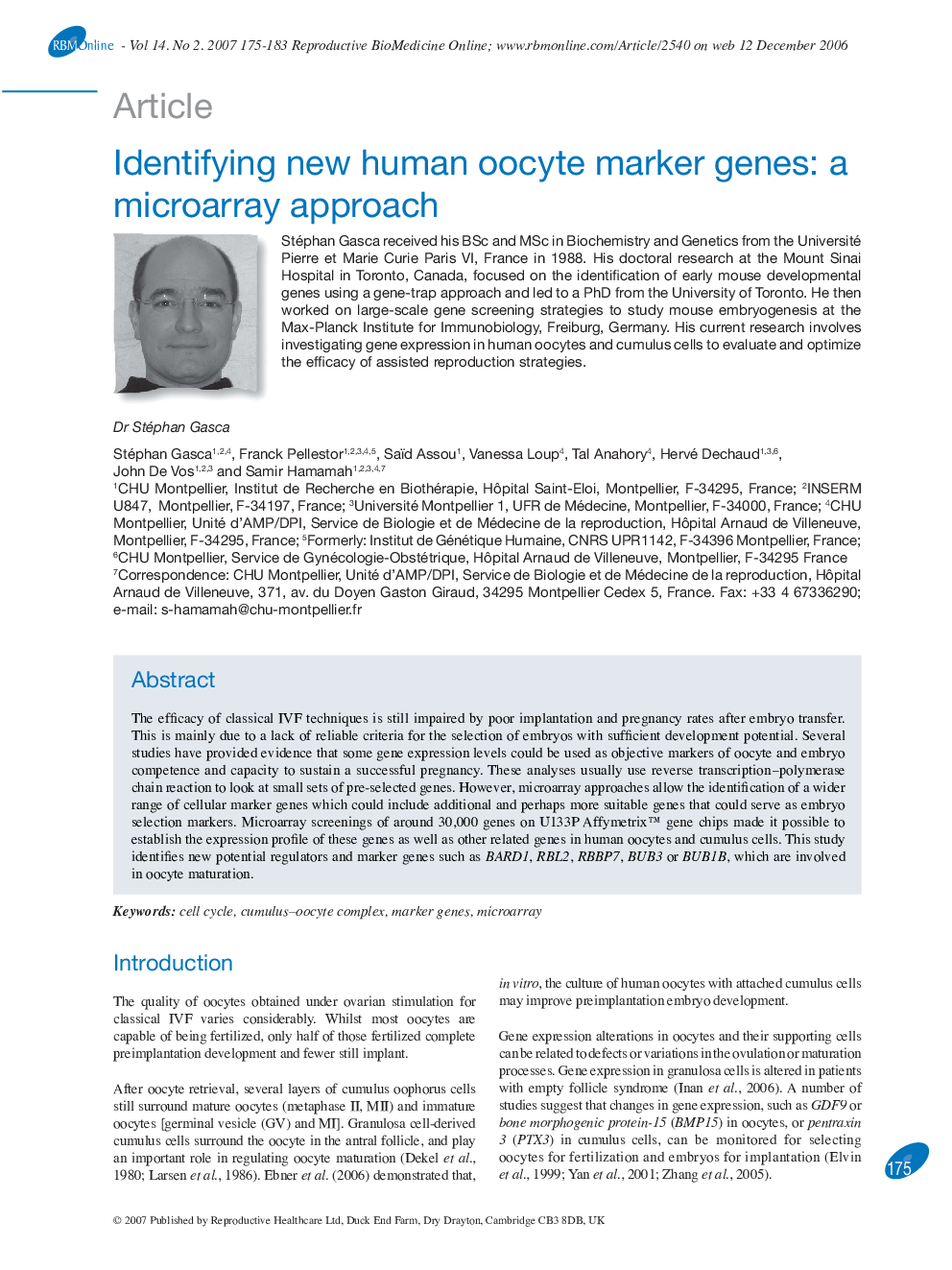| Article ID | Journal | Published Year | Pages | File Type |
|---|---|---|---|---|
| 3973225 | Reproductive BioMedicine Online | 2007 | 9 Pages |
The efficacy of classical IVF techniques is still impaired by poor implantation and pregnancy rates after embryo transfer. This is mainly due to a lack of reliable criteria for the selection of embryos with sufficient development potential. Several studies have provided evidence that some gene expression levels could be used as objective markers of oocyte and embryo competence and capacity to sustain a successful pregnancy. These analyses usually use reverse transcription–polymerase chain reaction to look at small sets of pre-selected genes. However, microarray approaches allow the identification of a wider range of cellular marker genes which could include additional and perhaps more suitable genes that could serve as embryo selection markers. Microarray screenings of around 30,000 genes on U133P Affymetrix™ gene chips made it possible to establish the expression profile of these genes as well as other related genes in human oocytes and cumulus cells. This study identifies new potential regulators and marker genes such as BARD1, RBL2, RBBP7, BUB3 or BUB1B, which are involved in oocyte maturation.
